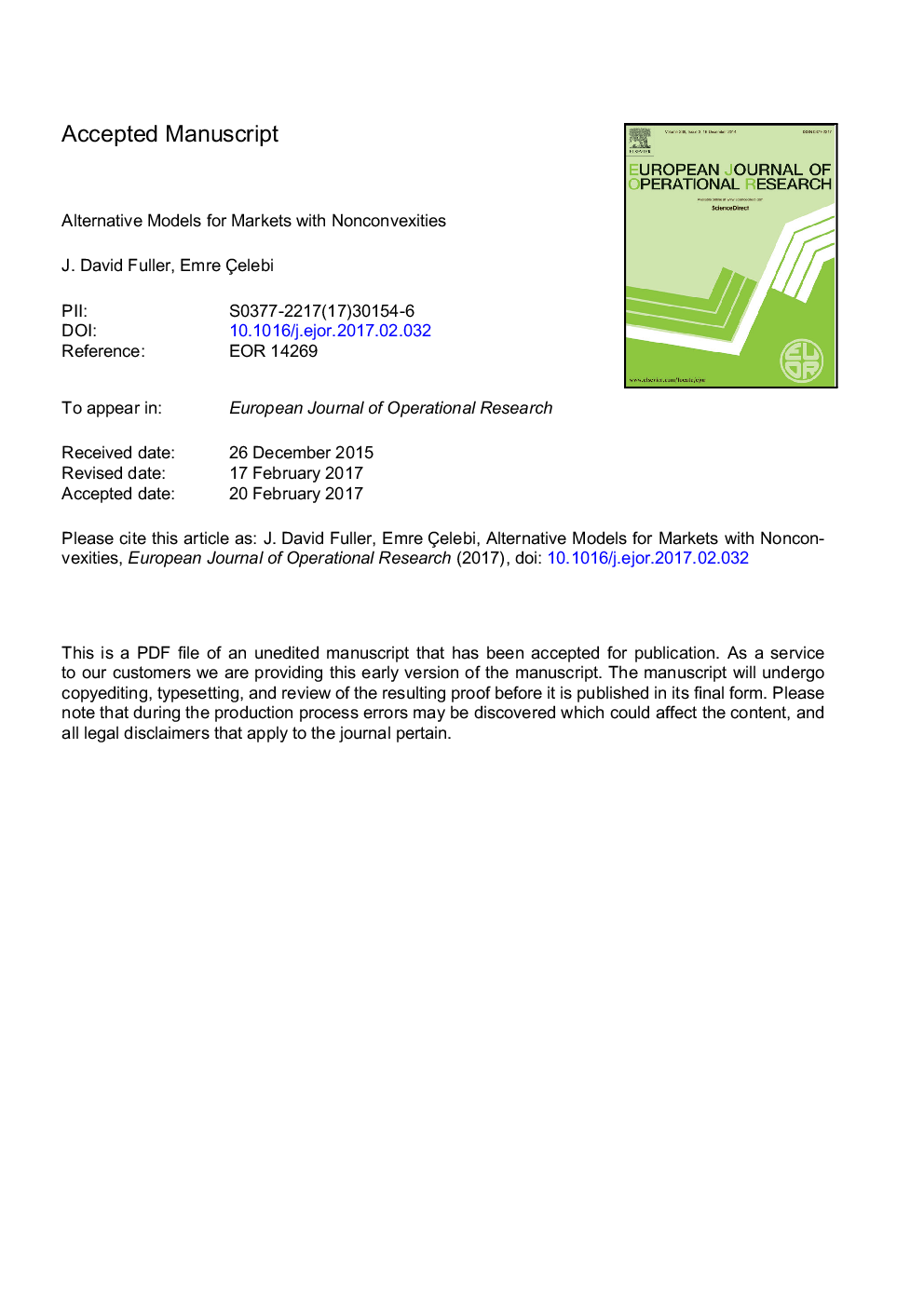| Article ID | Journal | Published Year | Pages | File Type |
|---|---|---|---|---|
| 4959630 | European Journal of Operational Research | 2017 | 42 Pages |
Abstract
In many electricity markets, the market operator solves a social welfare maximization (SW) model to determine market prices and generation (and consumption) “dispatch” instructions to firms participating in the market. When generation costs (or consumption benefits) are described as mixed integer programs, linear prices cannot, in general, be found such that all market participants are satisfied that the operator's dispatch instructions maximize profits, i.e., they perceive an opportunity cost. Often, “make whole” payments are made to market participants to bring negative profits up to zero, but not to adjust positive, nonoptimal profits. Make whole payments are added to “uplift” charges to customers for various non-market services provided by market participants. In previous research, “uplift” is extended to include the entire opportunity costs, and prices are adjusted to minimize the part of uplift that is due to discrete variables, while keeping the SW quantity instructions. We show that the SW instructions must be modified if the non-dispatchable demand is price sensitive; to allow for this, we define a model that minimizes total opportunity cost (MTOC), and we compare it to three other models - SW, SW with non-negative profit constraints, and a minimum complementarity (MC) model recently proposed by Gabriel et al. We show that the MC model approximates the MTOC model. Two unit commitment problems illustrate the models . In an online appendix, we also present small MTOC and MC two-commodity models for which an SW model cannot be formulated due to nonintegrability of demand.
Keywords
Related Topics
Physical Sciences and Engineering
Computer Science
Computer Science (General)
Authors
J. David Fuller, Emre Ãelebi,
